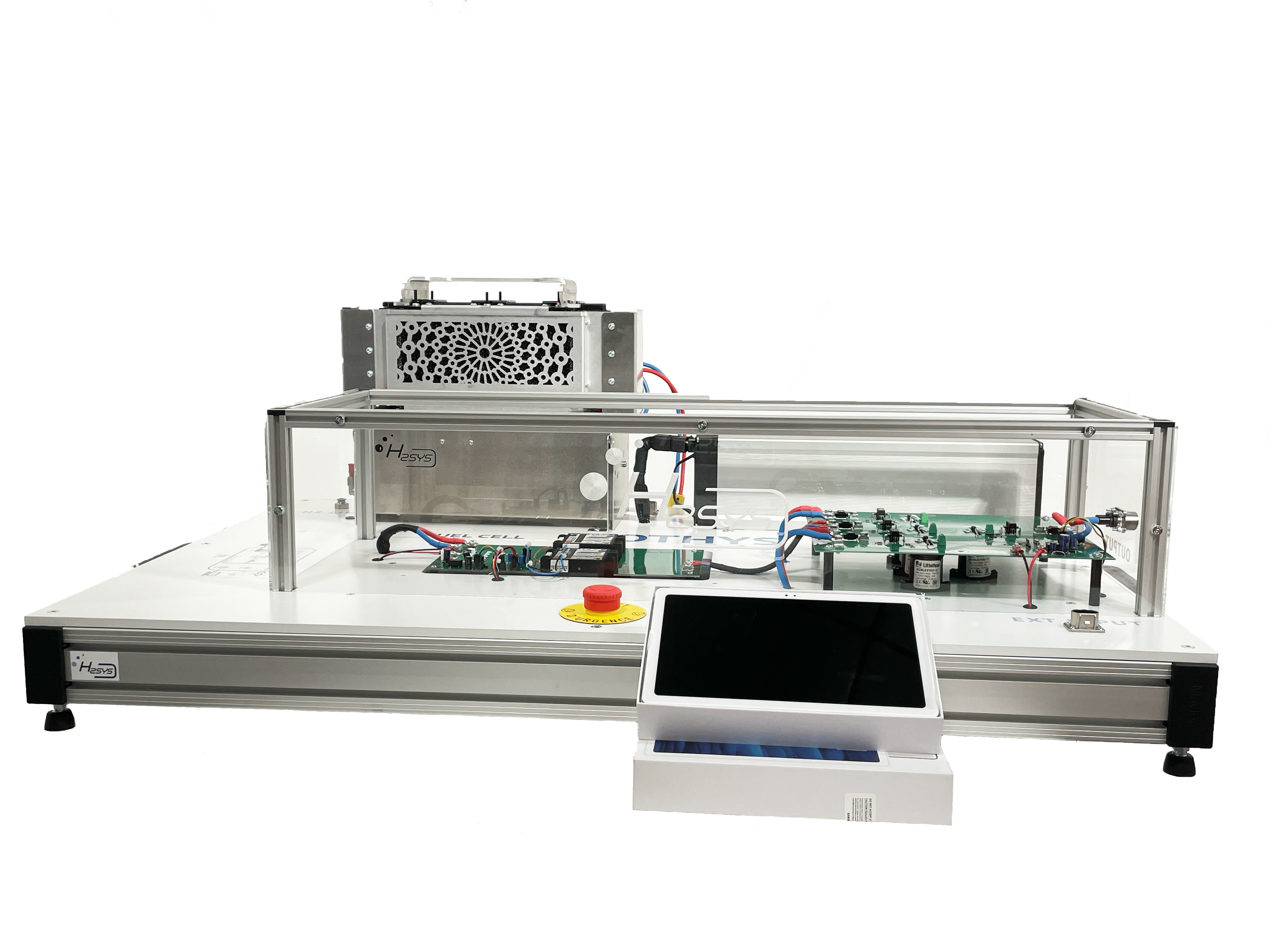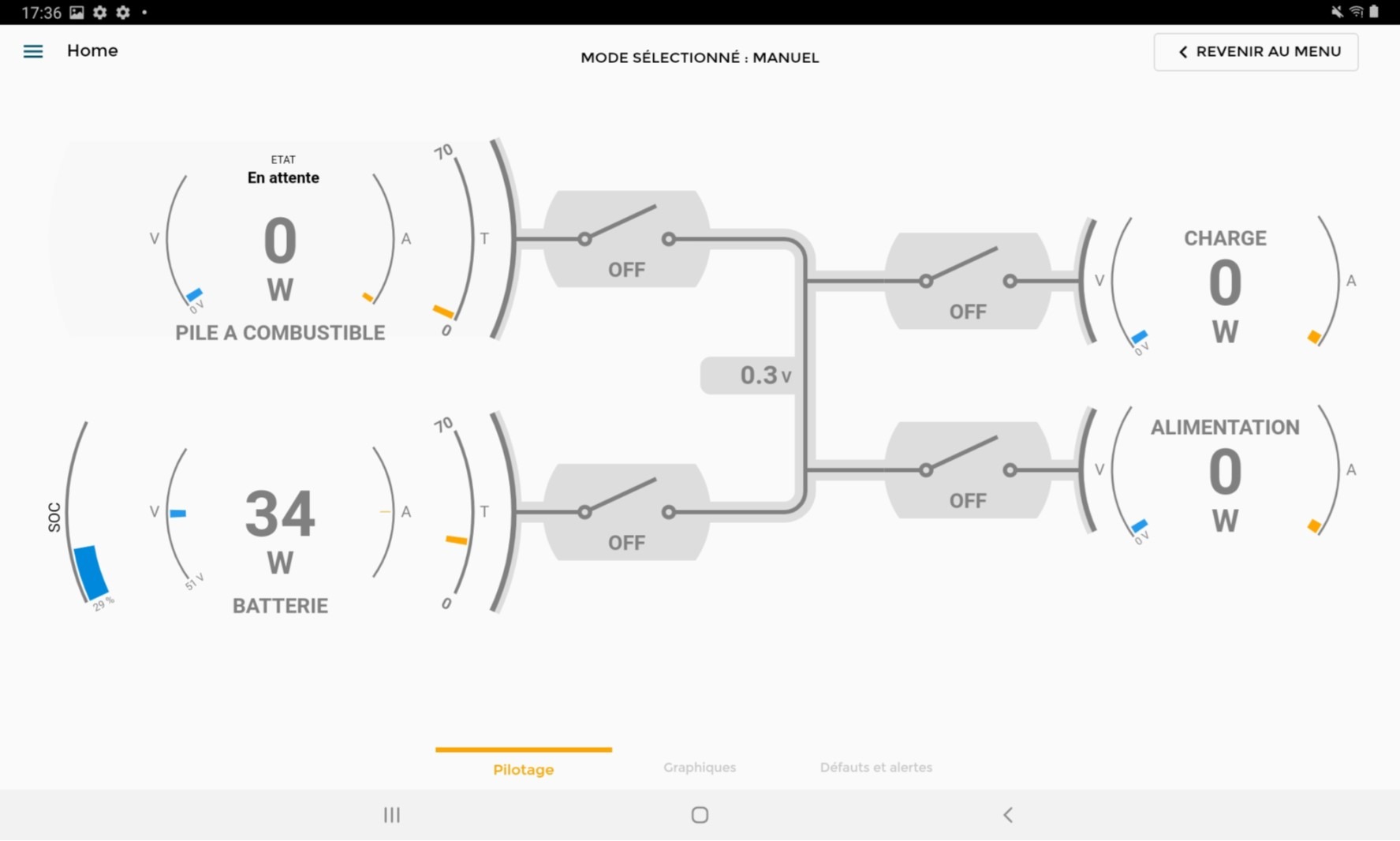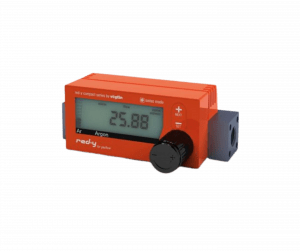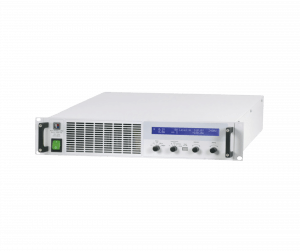Product description
H2SYS has conceived « Mothys » which is a didactic bench for practical training in hybrid hydrogen solutions. The bench can be used in training centers, high schools, universities and engineering schools and offers a wide variety of practical works.
The bench is delivered with a fuel cell system (not just a stack) based on open cathode PEM technology with a nominal power of 500 W or 1000 W + a battery pack from technology NMC + integrated DC/DC converters and control boards.
The main goal of Mothys didactic bench is to learn how to control hybrid systems by implementing energy laws to operate fuel cell and battery together. User will manage current instructions to decide the contribution of each equipment to supply the load at the output.
An additional input makes it possible to add a 48 Vdc power supply (solar panels, wind turbines …) to complete the multi-source hybridization approach.
The user has 4 operating modes:
Automatic mode: the bench is automatically controlled by H2SYS software. The fuel cell starts automatically according to the state of charge (SOC) of the battery pack and the current set-points depend on the output load.
Manual mode: User operates the bench through HMI. The touchscreen interface allows to operate contactors and a slider makes it possible to control the current produced by the fuel cell. User decides his own operating strategy.
Programming mode: User implements his own energy law through Matlab Simulink and the Arduino Mega board implemented in Mothys allows to operate the system to test the program developed by user
- Recharging mode


Product options

Metal hydride storage
The hydride tank allows to use the bench without the use of a pressure cylinder. The hydride tanks operate exclusively at low pressure and allow the students to understand the thermal management associated with the hydrogenation and dehydrogenation phases.

Hydrogen flow-meters
The H2 flowmeter measures the flow of hydrogen entering the fuel cell. It also allows to accurately measure the yields associated with the electrical conversion of the fuel cell.

electronic load
The electronic load allows to operate the bench by applying a current set point at a defined voltage level. It also allows to vary the power required from the system.
They trust in us for fuel cell and hydrogen technology for Education and Training



